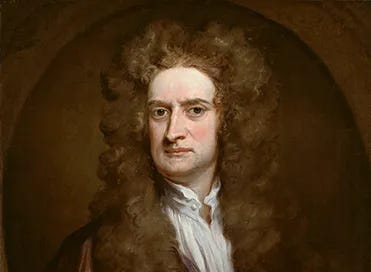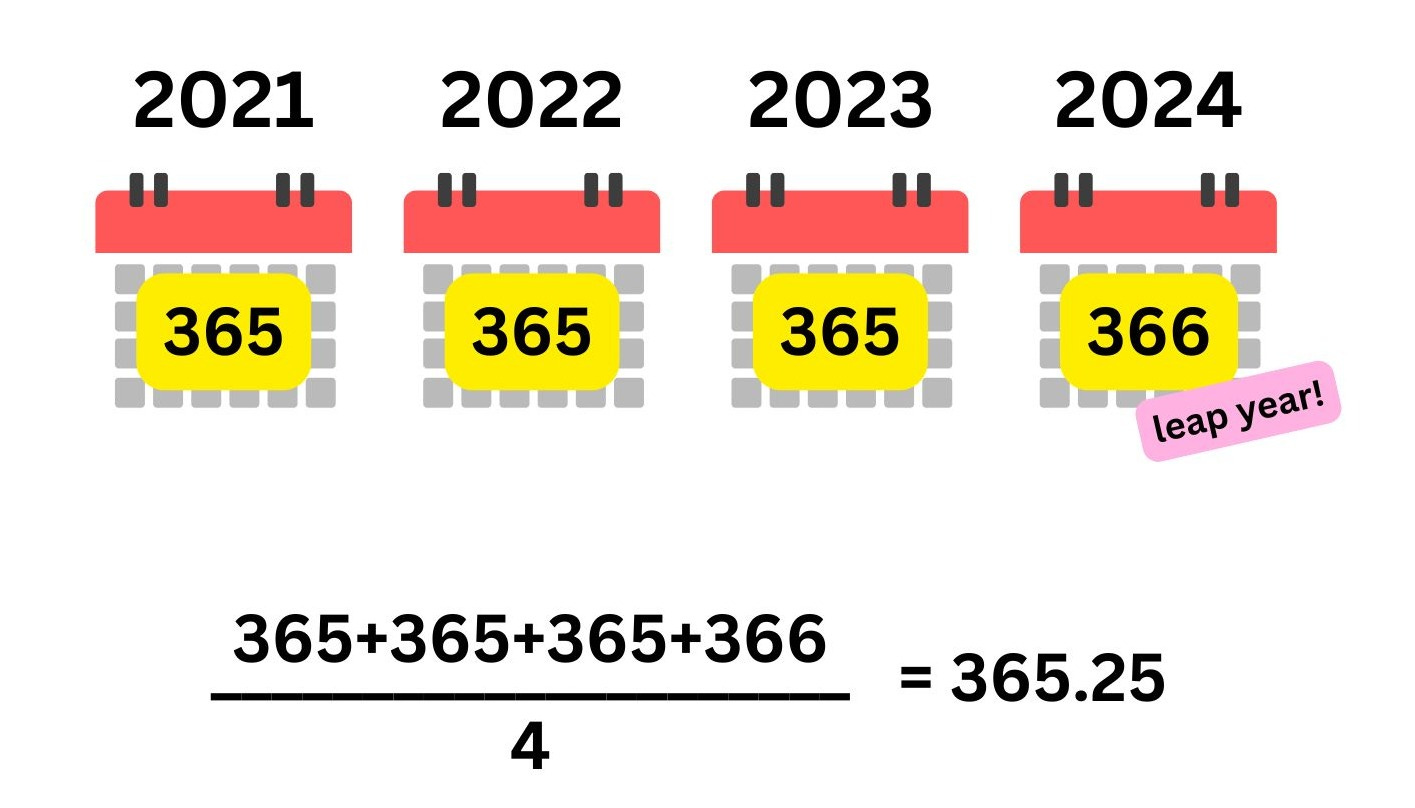Hey everyone!
The holidays are upon us and I wanted to share a fun fact about a special historical figure who celebrates their birthday on December 25th but whose actual date of birth has been disputed. Of course, the man I’m talking about is Isaac Newton.
Sources list Newton’s birthday as December 25th 1643, and this was indeed the date on the calendar when he was born (he has a Christmas birthday along with Justin Trudeau, Annie Lennox, and Dido). But outside of England, the date on the calendar was January 4th.
On Newton’s birthday, England was using an outdated calendar, the Julian calendar, which Europeans have used since Julius Caesar decreed it in 45 BC.
The Julian calendar had 365 days a year with an extra day added once every 4 years (on a leap year). That makes the average year 365.25 days long.
Except that’s wrong. Scientists realized that the length of a year should be closer to 365.2422 days long. That’s a difference of 0.0078 days, or 11 minutes and 13.92 seconds.
The Julian calendar was 11 minutes and 13.92 seconds too slow. And we had been using it for over 1600 years--that adds up to an error of 12 days!
Why Does This Matter?
If our calendar years don’t accurately line up with the Earth making a full trip around the sun, then our calendars will slowly shift out of sync with the seasons. December would no long mark the beginning of winter in the Northern hemisphere, and as Vanessa Williams sings, the snow would start coming down in June. If we want the seasons to be predictable, our calendars should be accurate to our astronomical position relative to the sun. For the Catholic church, there was an even bigger fish to fry: they might accidentally celebrate Easter on the wrong day.
The correct date for celebrating Easter has been a subject of debate among Christians since the very beginning. In 325 AD, a council of bishops agreed that Easter would be on the first Sunday after the first full moon on or after the Spring equinox.
The Spring equinox usually falls on March 20th (give or take a day), but if the calendars are out of sync with the astronomical solstices and equinoxes, then this is a problem.
In 1582, Pope Gregory XIII attempted to fix this by skipping the calendar forward by 10 days. He also modified the rules for leap years: years that are divisible by 100 but not 400 are no longer leap years. The years 500, 600, 700, 900, 1000, 1100, 1300, 1400, and 1500 were all leap years under Julius Caesar’s calendar, but changed back to being regular years under Pope Gregory’s calendar (referred to as the Gregorian calendar).
This seemingly complicated change only removes 3 leap years from every 400 years. That’s about an 11 minute difference per year, which is the change we wanted! This minor change makes the average year 365.2425 days long, which is closer to the true length.
When the Pope reformed the calendar, Catholic countries like France, Italy, Spain and Portugal followed suit. But Isaac Newton was born in England, a Protestant country which refused to adapt to a Catholic calendar, until 200 years later. When they finally made the switch, they renamed it the New Style Calendar, and conveniently left out any mention of the Pope. By then, Newton had passed away, but the English retroactively changed historical dates to reflect the new calendar. That’s why Newton’s birthday is listed as both December 25th (in the Old Style) and January 4th (in the New Style).
Happy birthday Isaac Newton (?), and to everyone else, I’m wishing you all a magical holiday season.






